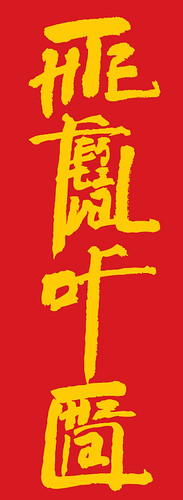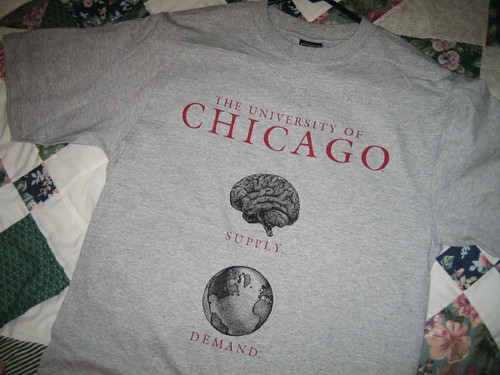Daylight Savings Time Ending tonight
Just a friendly reminder (for those of you in Daylight Savings zones) that your clocks/watches need to be re-adjusted tonight, before you go to bed. An extra hour to snooze...
Just a friendly reminder (for those of you in Daylight Savings zones) that your clocks/watches need to be re-adjusted tonight, before you go to bed. An extra hour to snooze...
Posted by
takchek
at
3:50 PM
1 comments
![]()
Almost two weeks ago, Mr Wang blogged about how Singapore online banks provide better (>10x) deals than the regular brick-and-mortar ones.
Same case as in the US. Peishan mentioned about switching to a 12-month CD (similar to what Singaporeans call fixed deposits) earning 4.2% APY. This is good if you are sure that you won't be needing the money for the next year and interest rates fall. But with online banks (FDIC insured) like emigrantdirect.com already offering a 4% APY on their savings account, I don't really see much of an advantage for opening a 12-month CD at 4.2%. Especially since interest rates are rumored to rise further.
So if you are resident in the US (with SSN and state ID/driver's license) , do also consider online banking if you want your money to work for you risk-free. Or at least up to the $100,000 FDIC insured limit per account.
Bankdeals is a good site to start your research before you plonk click away your money to the bank; bankrate is a convenient one-stop site for comparison of rates from mortgages to home equity to CDs of the various financial institutions.
More: How the various online banks shape up against one another, in terms of rates and their customer service.
Posted by
takchek
at
8:55 PM
1 comments
![]()
Was alerted to this on today (Oct 24)'s ST Forum. Thanks to Huichieh for sending me a copy of the original article that started it (See below).
Oct 20, 2005
Exchange student's switch to US varsity surprises NTU
by Jane Ng
NANYANG Technological University has moved to plug loopholes in its exchange programme after an undergraduate sent to the United States stayed on there.
NTU pays the tuition fees - capped at $7,000 - to foreign universities for its exchange students, who have to bear travel and living expenses themselves.
Mr Cheng Yi Wei, 24, a civil engineering student, was part of the first batch of students NTU sent to the Georgia Institute of Technology in Atlanta in December last year for six months.
The Straits Times understands that he applied to study in Georgia Tech through its normal application process after he got there, and both universities were unaware of this until after he was accepted.
Mr Cheng's batch did not have to promise to return the amount NTU invested on their overseas programme even if they decided to withdraw from the university.
But steps have now been taken to prevent such transfers, said NTU deputy president, Professor Er Meng Hwa.
And students going on the programme will now have to sign a contract requiring them to return the amount subsidised should they withdraw from NTU.
Mr Cheng declined to speak to The Straits Times but he told NTU's campus newspaper Nanyang Chronicle last month that he is 'transferring to another academic environment that suits me better'.
'I know some people are unhappy about my decision but I chose of my own free will and am not legally bound by any contracts,' he said.
Prof Er said that although NTU has taken steps to prevent students from abusing the programme, the system is not foolproof. But he hopes that 'students will be able to see the value of this programme and the trust that the university is placing on them'.
Georgia Tech, which ranks consistently in US magazine News & World Report's list of top 10 public universities, has apologised for letting Mr Cheng's application slip through. An NTU spokesman said the two universities have a mutual agreement to bar such admissions.
The six-month customised exchange programme aims to provide NTU students with the experience of studying or working abroad to achieve personal development and to discover their potential.
It differs from the usual exchange programmes as the curriculum at the foreign university is specially tailored to cater to NTU students.
NTU sent 180 students to China and the US last December and will be sending another batch of students this year to the two countries and to India, Switzerland and France.
ST Forum, Oct 24, 2005
Can ex-exchange student evade his conscience?
I AM writing in response to the report, 'Exchange student's switch to US varsity surprises NTU' (ST, Oct 20), on engineering student Cheng Yi Wei's switch to Georgia Institute of Technology in Atlanta while on an exchange programme from the Nanyang Technological University.
It is unfortunate that Mr Cheng, 24, failed to consider the implications
of his actions:
By accepting to study in NTU initially, he deprived another student a precious chance to study there;
By taking advantage of the exchange programme to switch to another university, he deprived another NTU student of the rare opportunity to take part in the programme; and
By doing so, he abused the trust that NTU had placed in its undergraduates.
It was shocking to read that Mr Cheng said he could do it since he was not 'legally bound'.
This event has had severe consequences - now NTU will have to legally bind its students on aspects that would not have been an issue when there was trust. Has our society degenerated to such a level that a six-month programme needs legal contracts?
While Mr Cheng managed to evade the legal repercussion of his actions, he cannot avoid his conscience.
What we do in life echoes in eternity - this a line from the movie Gladiator. Singapore society cannot thrive in a web of legal boundaries, but on the ethics of the people.
Kelvin Law Wei Ming
Posted by
takchek
at
11:05 PM
1 comments
![]()
Sometimes you get all sorts of interesting emails simply by posting your resume online, including the US military.
----------------------------------------------------------------------
Date: Fri, 21 Oct 2005 09:00:39 -0700
From: "The U.S. Navy Reserve"
Subject: We viewed your resume
Dear takchek,
Did you know that your particular engineering skills could help you lead a more complete life and build a better career in the U.S. Navy Reserve?
We currently have a variety of challenging opportunities related to almost every engineering discipline. Within our Officer ranks, we have openings in our Civil Engineer Corps as well as opportunities in our Science community. In our Enlisted ranks, we have opportunities in our Aviation community as well as in our Mechanical and Industrial Engineering community.
In exchange for your part-time commitment, you will receive countless benefits and rewards. You will also receive advanced vocational training and undergo unique experiences that are unrivaled in the civilian world.
One of the greatest benefits of joining the Navy Reserve is that you won't have to sacrifice your personal life to serve. Your training sessions will almost always be with the Navy Reserve unit located closest to your home.
To learn more about the Navy Reserve, we encourage you to visit navyreserve.com. Or, if you would like a Navy Reserve representative to contact you directly, please click here.
-----------------------------------------------------------------
Thanks, but no thanks.
Trivia: The navy links I have on this blog are the Minsk and Hymn to Red October - one of my most favorite music pieces.
Posted by
takchek
at
10:30 PM
1 comments
![]()
Labels: usna
For those who are/will be in Washington DC this month, check out the Festival of China being held at the Kennedy Center.
Mixing of Chinese calligraphy with English letters
One of the highlights:
CGI of Cai Quo Qiang's tornado
Some more pics found on flickr, including the actual shots.
Posted by
takchek
at
9:45 AM
0
comments
![]()
Labels: chinese
I think Singaporeans in general define (label?) themselves into several broad categories - educational background, familial wealth, and probably the jobs they held/hold. For the guys, there might also be the NS part - OCS, SISPEC etc.
Check out the reflections from Oikono and PJ.
*In case you don't know, PJ made headline news recently for swimming across the English Channel. He's also a Rhodes scholar.
In Singapore, students are relentless tracked and streamed from a young age, with the criteria almost
being entirely academic results. This results in the system being 'gamed' by students who cram relentlessly for exams, and teach themselves how to pass their exams well by studying lots and lots of past papers and the like. Perhaps this
is fairer, but it also has produced generations of Singaporeans who have tremendous capabilities to memorise information, but limited capacities to interpret and process the information, much less innovate, and thus do not have the skills to succeed in life (which is not measured by exams). Worse, it has marginalised all those who are tremendously talented in other areas but are unable to do as well in terms of academic results. I would immodestly suggest myself as an example (as you did), in that my academic results were decent but my talents lay in other areas. Anecdotally, my classmates who have been the most
successful in life were not necessarily those who did well academically. What I will always be grateful to Harvard for is recognising my potential and giving me a chance to really excel in life, because the Singapore system didn't give me
that chance. - PJ

Posted by
takchek
at
11:00 PM
1 comments
![]()
Labels: chicago, college, education, scholarships, singapore
Almost a month ago, I blogged about an ex-President's scholar. Today, the New Paper has an article on her.
Surprisingly no mention about whether she's a bond-breaker, since she's a National Science Scholar from A*star.
Related: Quarter Life Crisis' take on this.
The Electric New Paper :
# President's Scholar
# National shooter
She's also one of the World's top young innovators
MEET Typhoon Tracey.
By Tay Shian
14 October 2005
MEET Typhoon Tracey.
That's one of the names people use when talking about her.
And another T word crops up a lot.
Top.
After all, Dr Tracey Ho, 29, is:
# A top student who was a President's Scholar.
# A top shooter who has represented Singapore.
# And now, one of the world's top 35 innovators under 35.
The electrical engineering and computer science researcher joins an elite list, called the TR35. It is published by Technology Review, the innovation magazine of the Massachusetts Institute of Technology (MIT) in the US.
It comprises young innovators whose 'achievements will shape the world we live in for decades to come,' the magazine said on its website.
'They gravitate to the most interesting and difficult scientific and engineering problems at hand, and arrive at solutions no one had imagined.'
Also on this year's list are big names like Mr Bram Cohen, 29, the inventor of BitTorrent.
BitTorrent revolutionised file sharing on the Internet by allowing large files like movies to move much faster through cyberspace.
Dr Ho is on this year's list for her research on faster and more efficient ways to send information over the Internet and other networks.
In a thesis she wrote while doing her PhD at MIT, she proposed a scheme which improves network efficiency when files are too big or are sent to many users.
Dr Ho's research caught the eye of software giant Microsoft.
Just months after she presented the idea in 2003, Microsoft researchers showed that it can clearly outperform today's systems and decided to commercialise it.
Associate Professor Muriel Medard, Dr Ho's PhD adviser, told Technology Review: 'It's not just that it works; you can't make it work better.'
But Dr Ho makes light of what she has accomplished.
'The work that I do is just one little piece of the puzzle,' she said on a phone interview with The New Paper from the US.
She credited her MIT professors who were 'really good mentors', and the 'dedicated and encouraging' teachers she had in Singapore.
Humble words from the eldest child of two medical doctors, who was once tested as having an IQ of 180 ('You can't trust this stuff, I did it when I was young,' she jokes.)
The IQ of an average person is about 100.
Dr Ho said research is a 'very stimulating and exciting job - there are thrills and disappointments, surprises'.
So, what does it mean to be an innovator?
'Thinking of new ways to solve problems. Thinking along new lines, getting new ideas.'
Any tips for aspiring innovators?
'I think that ideas pop up unpredictably but are probably helped by reading about other ideas and persistently mulling over a problem for long enough... I think innovators benefit from persistence, hard work, and constantly being exposed to interesting ideas.'
In the past year, Dr Ho has been doing research with institutions like Bell Labs (Lucent Technologies' innovation engine) and the California Institute of Technology.
SHE PLAYS HARD TOO
While doing her PhD at MIT, she also found time to be the social chair for Edgerton House, which meant organising a number of events.
She also roller-blades, swims, plays tennis and does ballroom dancing.
Of course, she does not have a lot of time to indulge in these as she has been busy, and travelling a lot for work.
And she has been unable to practise shooting in the US as she cannot get a gun licence as a foreigner.
'Maybe I will have time later to revive old interests,' she said.
One thing Dr Ho did find time for was to get married, in June this year.
She met her husband, an American computer scientist, in graduate school at MIT.
But don't worry about her losing her Singapore roots - she's been coming back at least once or twice a year for the past decade.
She said: 'I still regard Singapore as home. I miss family, friends, the hot humid weather (really!), warm beaches and local food, especially fruits like custard apples, jackfruits and durians.'
She aces in grades and sports
HERE'S a summary of Dr Tracey Ho's achievements:
1983 to 1995: Admitted into the Gifted Education Programme in 1986 at age 10.
1995: Awarded the President's Scholarship. Went to the Massachusetts Institute of Technology (MIT) to study engineering.
1998: Won the national inter-collegiate air-pistol individual gold in Atlanta and helped MIT grab the women's team title.
1999: Completed her Bachelors and Masters degrees in electrical engineering at MIT, with a perfect grade-point average (GPA) of 5.0.
One of two US university students to be awarded the Tau Beta Pi Laureate, given by the national engineering society.
Represented Singapore in the South-east Asia Shooting Association Championships in Bangkok in December.
2000: Represented Singapore in Asian Shooting Championships in Langkawi.
2001: Awarded the Lee Kuan Yew Scholarship for postgraduate studies. Went to pursue a PhD in electrical engineering and computer science at MIT.
2002: Received a National Science Scholarship from the Singapore Agency for Science, Technology and Research (A*Star).
2004: Finished her PhD in three years, again with perfect GPA of 5.0.
2005: Named one of the world's top 35 innovators under age 35 by Technology Review, MIT's innovation magazine.
Posted by
takchek
at
11:37 AM
3
comments
![]()
Alerted by an entry on felumpfus' blog. Jorge Cham of PhD comics fame is coming down to visit! Go here to see if he's coming to your school.
Guess now it's time to buy his books (for his autographs!!!)
-------------------------------------------------------------------------
The announcement of the 2005 Nobel Physics Prize reminds me of Alexander Pope's epitaph for Isaac Newton:
"Nature and nature's laws lay hid in night;
God said 'Let Newton be' and all was light."
And I am surprised to read about John Collings Squire's later couplet:
"It did not last: the devil, shouting 'Ho.
Let Einstein be' restored the status quo."
So this year's prize is about "results..fundamental for our modern understanding of the behavior of light," - Sune Svanberg, chairman of the Nobel Committee for Physics.
I wonder if this has anything to do with the Centenary of Einstein's Annus Mirabilis 1905 papers, one of which is on the quantum theory of light...
Posted by
takchek
at
9:30 AM
0
comments
![]()
Labels: grad school, nobel prize, phdcomics, us
Some recommended blog discussions on the above topics (wrt Singapore):
1. On higher education loans/scholarships, with references to an earlier one on mrbrown.
2. On the Science vs Humanities 'dichotomy'.
3. Of teachers and respect; plus a related note of (parents') long-term effects on their children's upbringing (confidence).
"Don't tell a child he/she is dumb a hundred times, as he/she will most likely grow up believing it." - an anonymous parenting tip.
Posted by
takchek
at
10:35 AM
0
comments
![]()


